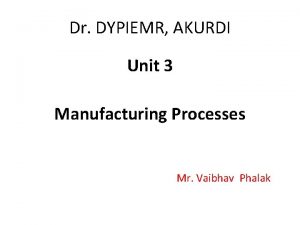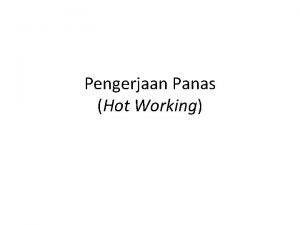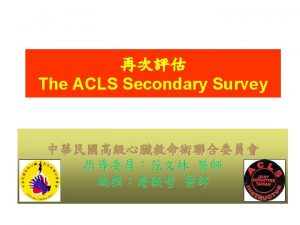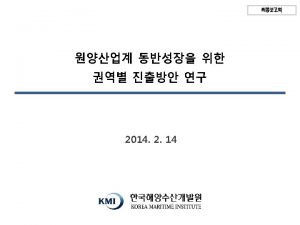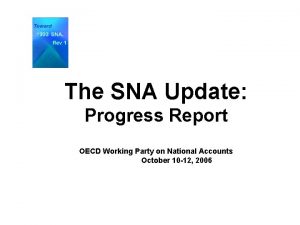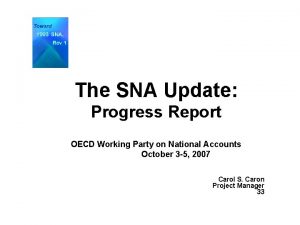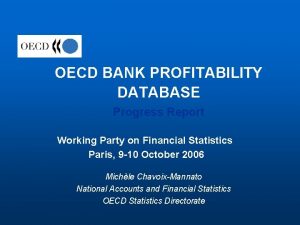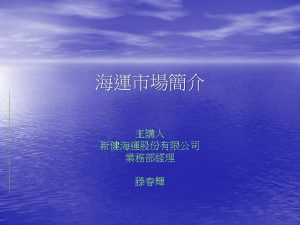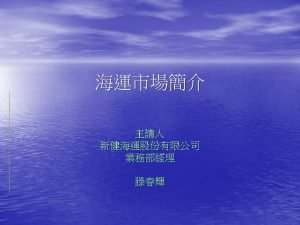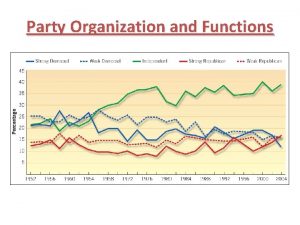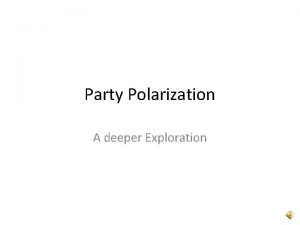REPORT OF 2008 OECD SOFTWARE SURVEY Working Party












- Slides: 12

REPORT OF 2008 OECD SOFTWARE SURVEY Working Party on National Accounts Paris, 14 -16 October 2008 Jiemin GUO

Introduction • 2001 OECD task force for implementation of SNA 93 treating software as fixed asset. • Two previous software surveys • 2002 survey – result reported to OECD WPNA 2002 • 2004 small follow-up survey – result reported to OECD WPNA 2004 • 2007 OECD task force on R&D and Other Intellectual Property Products • The 2008 software survey: for the handbook with updated information

2008 OECD Software Survey • Scope: OECD countries and accession countries (35) • 20 countries responded – 19 OECD Members – Israel

Basic approach (1) - Purchased software • 15 out of 20 countries use a combination of supply -side and demand-side data. • Most adopt confrontation and balancing process. • Some rely more on the supply-side data and just use the proportions from the survey estimates to allocate the supply-side aggregate to using industries and sectors, • others, such as the Netherlands, place more reliance on the demand-side data. • Countries had different views on the quality of the survey data. Some countries had concerns, but others thought they were of satisfactory quality.

Basic approach (2) - Own account software • Six countries indicated that they also use surveys to obtain estimates of own account software GFCF. • Three of them also use a macro method to derive estimates • The others rely solely on the survey estimates.

Basic approach (3) • The remaining 5 of the 20 countries use the supply-side approach only for purchased software and the macro approach only for own account software.

Supply-side approach • Countries were asked to provide details for the 7 steps for estimating software prescribed in the Handbook. • There is considerable variation in country practices and the relative magnitude of the adjustments. – Avoiding double counting – Excluding maintenance from software supply – Exclusion of household consumption. • Identifying imports of software is a major problem for many countries.

Macro approach to the estimation of own account software • Most countries use employment of software professionals, but the coverage varies • There is also considerable variation in the assumed proportions of the time spent by these people, ranges from 12. 5% to 50%. • The mark-up for non-labour costs varies a great deal, from 50% to 120% of labour costs.

SNA 2008 recommendation on software licences • Most countries reported that no data collected. • It appears that it will be difficult to implement in practice, and it is something the TF needs to address. • Possible solutions: – Add questions to surveys on length of software licences – Ask software publishers for length of software licences for business software

R&D and software • Only a few countries report having estimates of software R&D. – Only 8 countries answered. – 6 countries conducted R&D Survey. – 4 countries reported that R&D is included in the estimates of software GFCF. • Probably not much thought has been given to inclusion of software R&D by other countries.

Software price indices • US (BEA) has established software price indices for different components • A number of countries use the same approach as the BEA or use the adjusted BEA price index for packaged software. • Most of the others use various PPIs, CPIs or wage rates.

Software service lives • Most countries do not use different service lives for packaged and own account/customised software. • Overall, the service lives used vary between 3 and 8 years.
 Oecd working group on bribery
Oecd working group on bribery 2008 2008
2008 2008 Third and fourth party logistics
Third and fourth party logistics Asbestos working party
Asbestos working party Smart work vs hard work
Smart work vs hard work Advantage of hot working process
Advantage of hot working process Hot working and cold working difference
Hot working and cold working difference Differentiate between hot working and cold working
Differentiate between hot working and cold working Examples of cold working and hot working
Examples of cold working and hot working European working conditions survey 2020
European working conditions survey 2020 European working conditions survey
European working conditions survey Acls abcde
Acls abcde Function report writing
Function report writing







